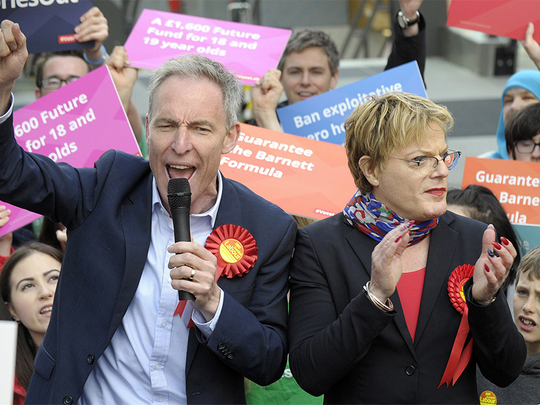
Leicester, UK: This is a grimy city. There’s a casino for gamblers, a pound store for scrimpers, and a football ground for those who think Leicester City can stay safe in the English Premier League.
There’s even a budget Premier Inn right down town, the parking is free and the happy hour bar specials fill the place up with students debating politics over two-for-one beverages.
And as grimy as the place is, pity poor old King Richard III who, since he ended up on the wrong end of a broadsword at the Battle of Bosworth Field in August, 1485, lay under what is now a car park in the city centre here, where the students walk to for cheap suds and gamblers flitter away money they can ill afford at the blinking slot machines.
Richard was the last of the Plantagenets and his defeat led to the shaping of modern England. Back then, the Scots were separate, independent and running their own affairs.
His remains were found in 2012, identified through forensics and DNA testing, and two months ago was given a burial fit for a king — in a cathedral.
And the England he ruled over was violently divided, deciding its future with pollaxes and spears. Now, with two days to go before England and the rest of the United Kingdom vote in a general election, the realm is deeply divided. The Scots, just as in 1485, want to go their own way. And the middle kingdom of England, polls show, is at odds and bitterly divided — though not at the point of pollaxes and spears.
The modern day Game of Thrones that is about to unfold at Westminster shows little, if anything, to separate the two main parties — the Conservatives under David Cameron and Labour under Ed Miliband.
Both parties are set to earn around 270-290 of the 650 seats in the House of Commons. Simple mathematics of British politics equates to a government needing a majority of 326 seats. Both parties will have solid blocs of Members of Parliament — just not enough to be able to govern.
And just as in the Game of Thrones, there is always a twist. Just like poor old Richard III, leaders have a way of ending up on the wrong end of a broadsword when the battle goes wrong.
Consider David Cameron. He has governed for five years and almost let the United Kingdom break apart when Scottish nationalists did everything but win a referendum on going their own way once again.
Now, his Conservatives are either narrowly ahead or even with Labour, according to a plethora of opinion polls published in newspapers on Sunday. He has committed to holding a referendum in the autumn of 2017 on Britain’s future participation in the European Union as a condition for entering a coalition government.
That’s not sitting well with the former partners in his 2010-21015 government, the Liberal Democrats. Because of being the scapegoat for unpopular policies, the Lib-Dems support is around 9 per cent — and they will do well to have 25 MPs returned to the Commons.
So Cameron may have to look to the eight or so Northern Irish democratic Ulster Unionist for support. They want more powers devolved to the Northern Ireland legislature in Stormont, and will also want more money for the province.
Those eight seats, depending on the Conservative results, won’t be enough to govern. So Cameron may look further to the right, to the 10 or so MPs from the United Kingdom Independence Party that are likely to be elected on Thursday. But they will want a referendum on EU membership sooner, and will force Cameron to impose strict anti-immigration policies and reverse cuts to the UK armed forces.
Even then, without Lib-Dem support, Cameron may not have enough to form a majority government. He may try to run a minority coalition — but all that means is that those in his party who threatened to oust him last September if the Scots had voted in favour of independence, would have a chance to topple him.
There is a delicious irony in that it was 40 years ago this week that the Iron Lady, Margaret Thatcher became Prime Minister. There hasn’t been a strong Conservative PM since then. And after the votes are counted on Thursday, Cameron isn’t going to be one. He may well look back to Richard III who lost it all when it mattered most. The blades are being sharpened in the Tory ranks. Without Cameron, the Lib-Dems might join a coalition. Losers in battle have a nasty way of being toppled.












